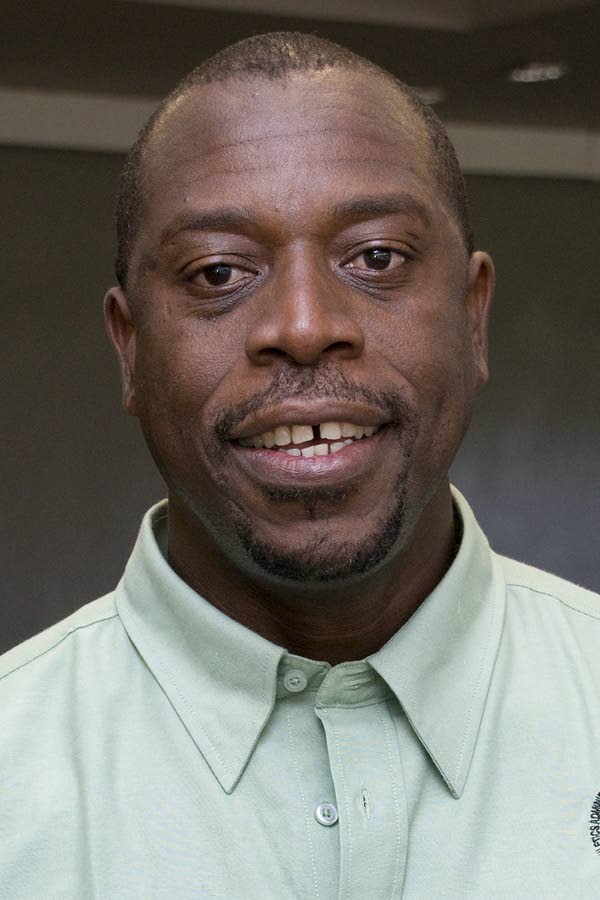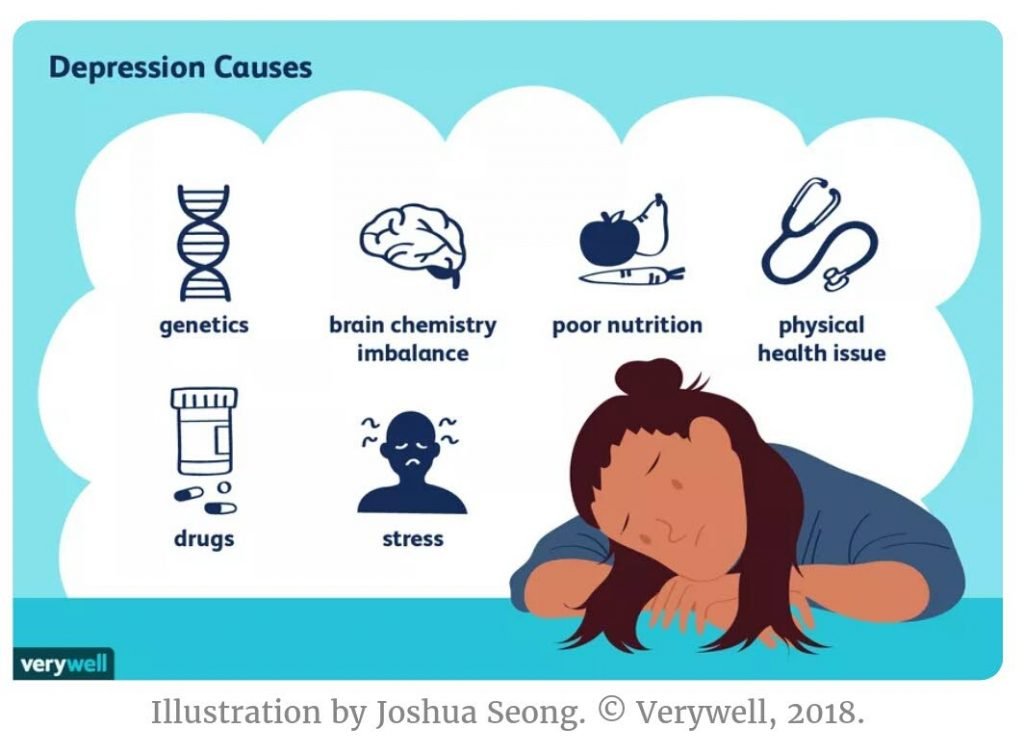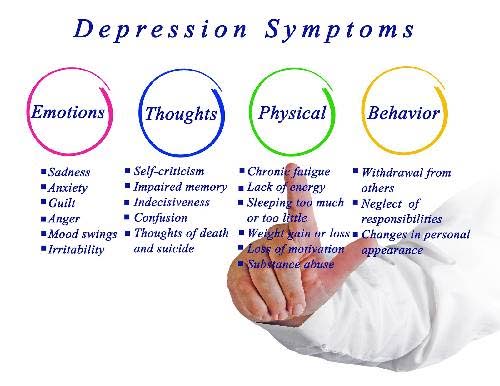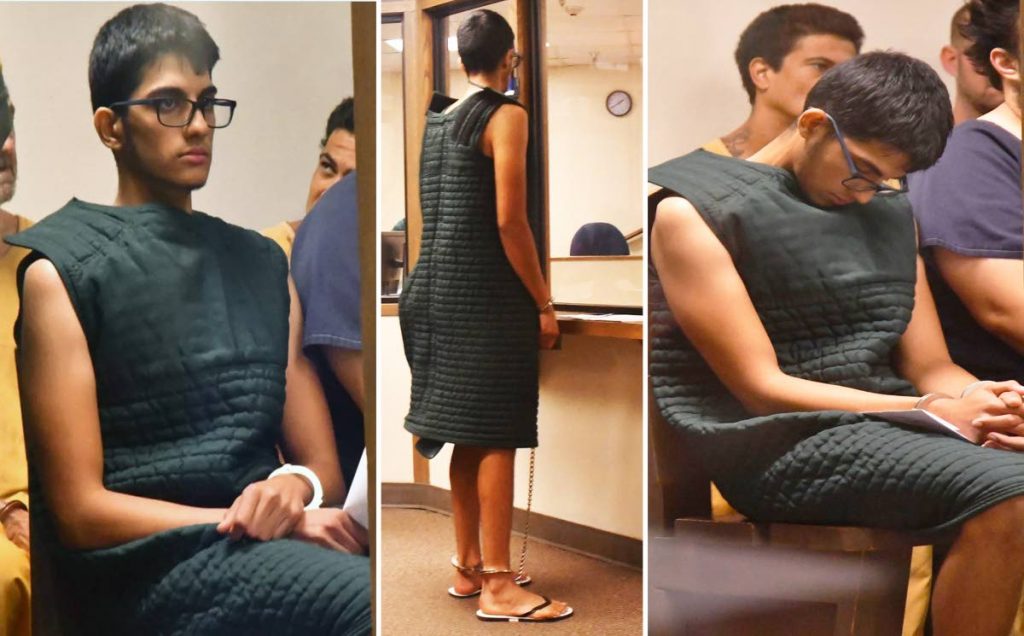Depression, chronic as diabetes

WE need to pay more attention to mental illness, says Dr Ian Hypolite. a psychiatrist at St Ann's Hospital.
"It is considered a chronic non-communicable disease, just like diabetes and hypertension." He said the issue of mental illness being socially considered a disease is crucial in terms of how it slows down how people are able to function.
"Depression, in particular, is going to gain much more significance in years to come, as a leading cause of people classified as having a disease."
He said TT may see a loss in productivity and an increase in hospital costs if more attention is not given to treating and preventing depression and mental health on the whole.
Reports by the World Health Organization on TT from 2017 says approximately 67,614 people suffer from depressive disorders – 5.2 per cent of the population.
Administrator for the US-based non-profit depression support group Depression Sanctuary Nancy Schimelpfening warns, "It's estimated that ten to 15 per cent of the general population will experience clinical depression in their lifetime." In an article on verywellmind.com on September 28 she said the World Health Organization estimates five per cent of men and nine per cent of women experience depressive disorders in any given year.

She outlined nine common causes of depression, which include genetics and biology, brain chemistry imbalance, female sex hormones, circadian rhythm disturbance which results in seasonal bouts of depression, poor nutrition, physical health problems, prescription drug use and abuse, stressful life events, and grief or loss.
Hypolite said in TT, the biopsychosocial model is used in treating patients. He explained, "We take into consideration all the biological, social and psychological contributors to depression. We therefore try to treat them in a holistic manner."
He said from a biological standpoint, medication is prescribed for physical methods of treatment from the host of anti-depressants available, which he said have a high success rate. From a psychological angle, various forms of therapy are employed. Depending on the particular situation of the patient, the most appropriate form of therapy would be selected, while making the necessary social interventions.
Hypolite said depression does not affect any specific age group, but there are some peak age groups: early adulthood from 20 into the 30s; and more women suffer from depression than men, at a ratio of 2:1.
Last week, police corporal Ian Hamilton, 36, who was brought up in a home as a result of a neglectful mother, died by suicide after reportedly struggling with depression since his fiancée died last year and finding himself in financial debt. A Newsday story by Ryan Hamilton-Davis on September 28, said Hamilton had calculated his death, "making peace" with loved ones and playing with the police band one final time.
For people who suffer from depression, Hypolite said, "Suicide is really a final event. Personalities may play a role in whether someone commits suicide, but it is mostly based on the severity of the state of depression, which would result in a deep sense of hopelessness, (rather) than the personality type."
He said some personality types may be more prone to attempt suicide, and therefore more likely to complete it.
"There are people who suffer from borderline personality disorder, who can be very erratic, and those who are psychopaths in terms of personality, who lack remorse: they may of course also complete suicide, and/or homicide. Psychopaths are the ones who occupy most of the spaces in our jails."
Why don't we spot depression?
Psychotherapist and public speaker based in TT Bertrand Moses said, “Depression often poses a challenge for family members and loved ones because it could often be misunderstood as an individual distancing his or herself from them.” He said the Diagnostic and Statistical Manual of Mental Disorders, fifth edition (DSM 5) is the manual psychotherapists use to determine if depression may be a challenge for an individual.

Source: practo.com
Moses said, “One criterion is that the individual may display a diminished interest or pleasure in all, or almost all, activities most of the day. This could be interpreted as a refusal to spend time with a loved one. As such, this may result in a relationship ending or it may result in reciprocal distancing.” Moses said another barrier to identifying depression in a loved one in TT “may be the ever-present alcohol environment associated with our fete, party and lime lifestyle.”
He said alcohol is often used as a mask to conceal emotions.
“This is of grave concern because the Pan American Health Organization (PAHO) in a report on Suicide Mortality in the Americas, 2014, revealed that more than 90 per cent of suicidal victims has a diagnosable chronic mental disorder such as depression, as well as substance use disorders. They often go hand in hand.
"To complicate this, PAHO also revealed that although it is a treatable disease, six out of every ten people who have depression in Latin America and the Caribbean do not seek or receive treatment,”
Online support – locally
Founder of You Are Not Alone (Yana) Ashley Alonzo said it is important for the narrative and framing of mental health to be redefined. Yana is a TT-based online community of approximately 5,000 members, created for people struggling with mental health.
Alonzo said mental illness is still stigmatised even though things are changing and the society is being more open to differences. She referred to Nishal Sankat, who was charged with attempting to steal a plane. Alonzo said people make a joke of it and say, “It is so easy to say you’re ‘mad’ when you get in trouble.”
She said she also heard of an acquaintance, who died by suicide this week. “He was young, he had a girlfriend, and he had his whole life ahead of him. Suicides are so rampant, but people don’t talk about it enough. People are so afraid to speak up because they don’t know what they are going to be met with.”
Alonzo said in work settings, there is generally more lenience with issues of physiological health than mental health.
“If you walk into work and say your sugar is low, you’re not well, that would be treated normally. But to say, 'I cannot come in today, I need a mental health day' – nobody takes it seriously."
She said her dream is to hear St Ann’s being referred to as a hospital, and not a "madhouse."
The most rewarding part of being a founder of Yana, she said, is seeing how much the online community has helped many who were challenged by depression and thoughts of suicide.
“It was something I created for community, to help me cope with depression – but to see it help so many others is far more rewarding.”
Administrative member of Yana Stefan Stone said as more articles are written and more conversation is had about depression, the stigma lessens.

“I still hear of a lot of people who go through this and their family tells them it is not an issue – you are just being lazy.”
Stone said people are not only afraid of how they will be viewed by their family and friends, but a major challenge is connected to how they will be perceived by people in professional spaces. “People are afraid of the professional repercussions of speaking about these things.”
He said while the issue of mental health gains more attention, there is still great room for improvement as there needs to be a greater institutionalised thrust, more facilities, infrastructure and practitioners in place at mental health facilities. Stone said the government does not invest enough resources, and therefore mental health practitioners do not have sufficient infrastructural support to function in the most effective way.
The thrust to tackle mental health in TT, he said, is also slowed by small numbers of psychiatric doctors, resulting in a pressured system.
Yana is arranging to become a non-profit organisation, which will further strengthen its reach and impact. Alonzo said, "The legal documents have been drafted, the name has been registered, and it is being registered as a non-profit. We are taking the steps to get there."
Yana can be found on Facebook: search for You Are Not Alone TT (Yana).
Getting help
Moses said tips for coping with the effects of depression include building a support network, practise blocking negative thoughts, implement healthy lifestyle changes such as getting enough sleep and speaking with a mental health professional.
People seeking help with mental health challenges can also call:
Suicide Help Resources Lifeline, a 24-hour hotline at 688 8525, 650.5270
Mental Health Unit at the Ministry of Health at 285 9126 ext. 2577, 2571 or 2573 or 645 3532 ext. 2542.
Emergency Care Resources, St Ann's Psychiatric Hospital at 624 1151-5
San Fernando General Hospital, Ward One, 652 3581 ext.3221.
Depression: a global issue
Celebrities and social media influencers who struggle with the illness have brought greater attention to depression as a real issue faced by many people. Modern technology and electronic media have made these stories easier to share, thus widening the reach exponentially when compared to times past. This allows people to form online support groups, and have greater ease of access to information for identifying the symptoms of depression and ways of coping with its effects.
In an article on Vogue's website on September 26, supermodel Gisele Bündchen opened up about her own struggle with depression and thoughts of suicide. Bündchen said in her mid-twenties she struggled with feeling trapped in her own life, which led to her contemplating suicide as the only way out.
“The idea swept over me: Maybe it will be easier if I just jump. It will be all over. I can get out of this. When I think back on that moment, and that 23-year-old girl, I want to cry. I want to tell her that everything will be all right, that she hasn’t even begun to live her life. But in that moment, the only answer seemed to be to jump,” she wrote in her memoir, Lessons: My Path to a Meaningful Life.
Earlier this year shock waves were sent around the globe when renowned chef and media personality Anthony Bourdain, designer Kate Spade and producer Avicii died by suicide, joining a league of great creative influencers who saw no other way of coping with depression and other mental health challenges.
The World Health Organization says, “Close to 800,000 people die due to suicide every year, which is one person every 40 seconds. Many more attempt suicide. Suicide occurs throughout the lifespan and is the second leading cause of death among 15-29-year-olds globally.” The American Foundation for Suicide Prevention says suicide is the tenth leading cause of death in the US. Each year 44,965 Americans die by suicide, costing the country US$69 billion annually.

Comments
"Depression, chronic as diabetes"